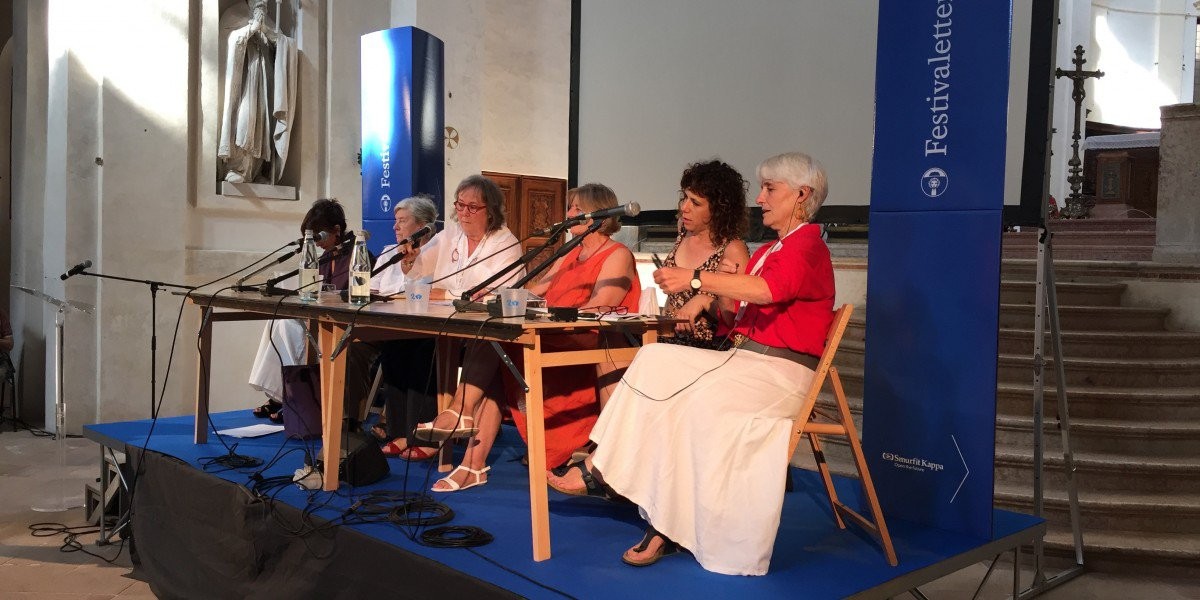
What's the secret behind the incredible success of My Brilliant Friend?
“Lila did something unexpected. She stopped to wait for me and when I reached her she gave me her hand. This gesture changed everything between us forever.”
The thousand-plus pages of My Brilliant Friend by Elena Ferrante flow in this wonderfully fluid way, with simple, effective writing, free from any kind of trope and rhetoric. As Jonathan Coe confessed during the presentation of his novel Number 11 at Festivaletteratura, "in long novels, such as Elena Ferrante's My Brilliant Friend, you find some sort of antidote to our short attention spans."
Ferrante's My Brilliant Friend has had incredible success all around the world. At Festivaletteratura, we retraced the steps of the Neopolitan Novels to try to understand the reasons behind this success. The publisher Sandra Ozzola, the philosopher Luisa Muraro, the actress Anna Bonaiuto and the author Jami Attenberg shared their interesting takes on the phenomena with the audience.
"Books don't need an author once they have been written." Ferrante's words introduce a question and an inevitable argument. Who is hiding behind Elena Ferrante? Is this choice of hiding the result of a well-considered marketing choice to project a fascinating air of mystery onto the page? Or is it perhaps the universality of the story of a friendship that makes this Italian saga so vibrant and unforgettable?
The speakers have no doubt: "Elena Ferrante has opened up a new age of Italian literature. She has managed to transfer the images of women from Morante, from De Céspedes, into our world. Their consciousness nourishes the intangibility of the female soul. Their love expands on the page and reaches us."
It is the freedom of imagination that marks the real success of My Brilliant Friend: there is a small step from the writer's anonymity to the characterisation of the - mostly female - characters. And not only that. Jami Attenberg explained how in the United States, Ferrante has turned into a sort shared reading experience, a kind of "we are with her but among you".
But the marketing techniques, communication strategies and anonymity are soon put to one side when the public, in the ensuing debate, asks: "When is the fifth book coming out?"



